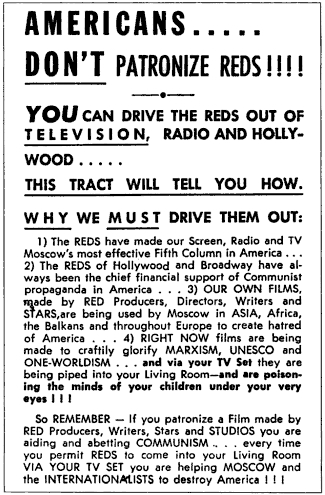More and more of us, it seems, are afraid to speak our minds these days. We are all aware that our society faces problems, and there are loud voices out there decreeing what the answers must be. Moral grandstanding, as described in this excellent Scientific American article by Scott Barry Kaufman, is rampant. But the world is messy and complex, and the answers decreed by talking heads—and sometimes by our well-meaning friends—may sometimes strike us as off base. This can happen even when we mainly agree with the argument and share core values.
Of course it’s fine—indeed, it’s expected—to critique people outside of your ideological tribe. But the political stakes feel high enough that it seems increasingly dangerous to suggest that your own friends and allies might be oversimplifying things. Or maybe even wrong.

Such would-be questioners fear what’s known as getting “canceled.” The term generally refers to widespread social shaming, possibly accompanied by a smear campaign or professional consequences. This is a particular danger to journalists and writers. We’ve seen multiple examples now in young adult publishing of authors’ books being canceled in the late stages of the publishing process for issues that used to be discussed in a more measured fashion. People may also be canceled for speaking on a range of politically-charged scientific issues, as documented by Alice Dreger in her book Galileo’s Middle Finger: Heretics, Activists, and One Scholar’s Search for Justice. Or they may be canceled from within social justice organizations. I saw this myself when an activist was canceled in my own leftist group. (And yes, let me acknowledge that these are all examples from the political left. That’s because the left is my political home, so I am more tuned in and directly affected by the controversies there. But though cancel culture does appear at present to be more common on the left, it happens today and has happened historically in right wing circles, too. Victims and opponents of cancellation can be found left, right, and center.)
Of course, voicing an unpopular opinion has always involved certain level of consequence. And that’s not a bad thing: you may be destabilizing something, hurting someone, or rocking a boat to no good end. It’s incumbent upon the speaker to weigh these possibilities against the benefits of speaking.
The Internet, however, shifts this calculus by adding two factors: the ability to engage across distance with strangers and the capacity for virality. When these two factors merge, an ability to mob emerges. Digitally-empowered mobs raise the cost of unpopular speech considerably. While some might believe that they help limit the harm caused by misguided or malicious speech, they also make people fear to speak in good faith. Moreover, this dynamic means that when a speaker egregiously violates one tribe’s orthodoxy, he or she will now get praised as “brave” by people outside that tribe. This in turn leads to that speech’s amplification by algorithms—and so the outrage mob thereby elevates extreme, equally dogmatic responses, even as the nuanced considerations of humbler truth seekers are left in the dust. But I digress; the point is, we’re not very good at dealing anger that can reach to strangers across distances and go viral.
And it’s not just professionals who risk getting canceled. People without major platforms increasingly fear of being shunned by their friends for views that suggest sympathy with someone their circle considers a moral opponent. As members of the morally righteous tribe, these individuals are now susceptible to accusations of treason. (Whereas if you have a friend or relative who belongs to a different ideological tribe and they still associate with you in this political climate, you have already agreed to disagree on some level.)
Under this climate, it’s not surprising that questioners who value nuance are feeling heightened anxiety.
This anxiety matters for a few reasons that are relevant to our mission here at Third Factor. It matters on a societal level because good-faith questioning keeps us our society from missing the mark, whatever socially beneficial mark that may be. And it matters on a personal level to those individuals who are experiencing even the small-scale pain of social rejection, and to those who are feeling fearful and inhibited in their relationships. Those with a penchant for questioning surely already know that their questioning can annoy people, but cancel culture takes this to a whole new level.
Intellectual Intensity and the Compulsion to Question
In my experience, such questioners tend to be people we could describe as intellectually intense or excitable. Regular readers will know that I’m referring to a concept from the theory of positive disintegration (TPD) most commonly called overexcitability (OE). OE is a heightened responsiveness to stimuli that can manifest in any (or all) of five domains—intellectual, imaginational, emotional, psychomotor, and sensory. The first of those domains can be described as follows:
Intellectual overexcitability encompasses intensified activity of the mind, thirst for knowledge, curiosity, capacity for concentration and sustained intellectual effort, avid reading, and precision in observation, recall, and careful planning. Questioning is the hallmark of intellectual OE in the search for knowledge, understanding, and truth. Solving problems, finding it difficult to let go of a problem, and finding new problems to solve is typical. Another trait associated with intellectual OE is reflective thought, exemplified by the metacognition of watching one’s own thought processes, delighting in analyses and theoretical thought even at very young ages, preoccupation with logic, moral thinking, introspection, and seeking integration of concepts and intuitions.
Source: Susan Daniels, coauthor of Living With Intensity
The emphasis in the above is mine, because it’s central to the dilemma I’m describing. It is precisely that drive to question in pursuit of “capital-T Truth”—especially when paired with introspection and concern for morality—that underlies the sense of dread such people experience when they perceive a risk of “cancellation.” Many such people will have already faced anti-intellectual impulses and other forms of social rejection. Some of them have said things outright and suffered the consequences (which they may or may not have anticipated, as some on the autism spectrum have observed), while those with sufficient social intelligence may have learned early in their lives to keep their mouths closed. Such social awareness, however, does not eliminate the problem, because the tension between the drive to ask those questions—to say what you believe ought to be said—and your knowledge that it will hurt or anger people can become quite uncomfortable indeed.
For those with intellectual overexcitability, the tension between the drive to ask those questions—to say what you believe ought to be said—and your knowledge that it will hurt or anger people can become quite uncomfortable indeed.
It is, of course, worth noting that intellectually overexcitable people are a diverse group. Some may have followed a path of analysis that led them to believe that so-called cancel culture is actually for the best, as it supports a greater goal. Others may be convinced that speaking the truth is always for the best; they therefore feel no tension over the possibility that what they say may have negative repercussions, perhaps especially when those consequences involve people’s feelings. Any two intellectually intense people do not necessarily agree on anything, including the importance of this topic.
Nevertheless, I have heard from many Third Factor readers and other intellectually intense people who are experiencing the sort of anxiety I have described. This leads me to ask: How is a person neurologically disposed to intellectual intensity to make their way in this world? How can they balance capital-C Compassion with their pursuit of Truth? How can they engage effectively in this discourse for which they have an innate drive, especially in a politically fractured, digitally driven age? How can they nurture relationships that might help to lessen this anxiety?

A Source of Positive Disintegration
Ultimately, I suspect the tension we feel under cancel culture has a lot to do with why overexcitability leads to positive disintegration, as described in Kazimierz Dabrowski’s theory. Overexcitability leaves you maladjusted, whether you’re facing a dearth of Truth or of Compassion. Having something inside us break down under this tension—that is, to experience disintegration—is positive when it compels you to examine your values and to strive to live up to them. It’s quite possible that, as you prod the source of the tension you are feeling, higher and lower paths will become clear to you. Then, if you’re courageous, you will follow the higher path. This, unfortunately, does not mean it will not come at a cost. Indeed, it’s likely that it will. But it might be clearer that it’s worth it, and that you’re not doing the wrong thing.
Disintegration under this tension is positive when it compels you to examine your values and strive to live up to them. It’s possible that when you do so, the higher and lower paths will become clear.
Now that I’ve laid out the problem, I’m going to explore attempts to solve it in (at least) two more articles in this series. In Part II, I’ll discuss some historic attempts by intellectually intense, compassionate people who sought to balance the social need for fearless speech with the undesirable consequences that speech may have for others. Then, in Part III, I’ll explore some ideas about how individuals and groups can bolster themselves and create a counterculture in which good-faith questioners can thrive.




